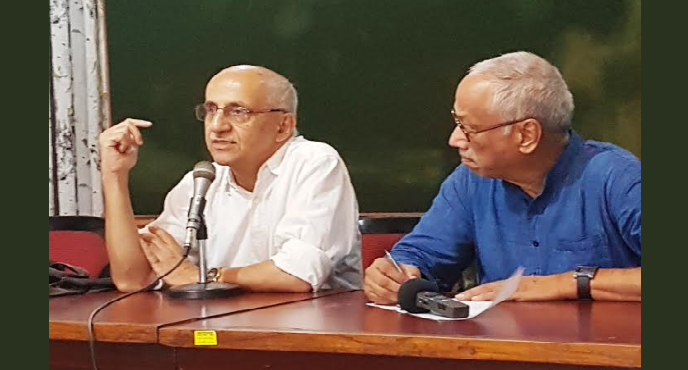Karawan-e-Mohabbat to be Flagged off from Assam on Sep 4
ABDUL GANI

GUWAHATI: Karawan-e-Mohabbat, an east to west rally of peace loving citizens of India, initiated by Aman Biradiri and Centre for Equity Studies (CES) will be flagged off from Assam on September 4, said bureaucrat-turned-peace activist Harsh Mander.
The rally is aimed at promoting peace, brotherhood and understanding among the people of the country will start in Assam, traverse through Jharkhand, Karnataka, Delhi, Rajasthan, and culminate at Porbandar in Gujarat on October 2, coinciding with the birthday of the father of the nation, Mahatma Gandhi.
“We have joined hands to undertake this journey across parts of India which are worst affected by lynching. The purpose is twofold -- to respond to the everyday fear of Muslims, Dalits and Christians, and the worrying silences of the majority. We aim to declare that we stand with our Muslim, Dalit and Christian sisters and brothers in this hour of gathering darkness. But the journey is also a call of conscience to India’s majority,” said CES director Harsh Mander who is also a special commissioner to the Supreme Court of India in the Right to Food case.
The major aim of the Karawan will be to visit families which have suffered from lynch attacks in each of the states -- Assam, Jharkhand, Karnataka, Western UP, Haryana, Rajasthan, and Gujarat. The team members travelling in a bus “will offer our atonement and solidarity to each of the lynch victim families. “In each state, they will try to assess how the family is coping and what they need for livelihoods and the pursuit of justice.
“It will be a journey for sharing pain, for atonement, for solidarity and for love,” added Mander.
Monirul Hussain, former head of Political Science Department, Gauhati University, spoke of the need to develop courage to speak in favour of love and brotherhood like Gandhi did in the wake of communal riots following the independence of India in 1947.
Indian Muslims are learning to endure an intense sense of foreboding – a lurking, unnamed, unspoken fear. This is not simply the apprehension of discrimination, of being treated the ‘other’ -- in classrooms, in public spaces, in residential colonies. This they have long become accustomed to. What is new is the persisting danger of imminent violence, of being vulnerable to attack anywhere - on a public road, in a bus or train, in a marketplace, even in their homes - only for looking and being Muslim, said a note issued by Karawan-e-Mohabbat.
In tribal regions, Christian people are living in terror. There is another community as well that has long lived with everyday violence and humiliation, the Dalits. But they too are now fearful of attacks for pursuing their socially demeaning caste vocation of skinning cows.
“We need to interrogate the reasons for our silences, for our failures to speak out, and to intervene, when murderous hate is unleashed on innocent lives. We need our conscience to ache. We need it to be burdened intolerably,” the statement said.



